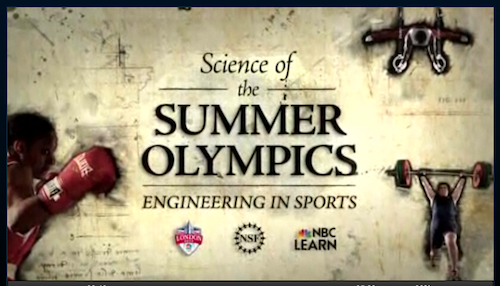| British eventing team farrier Brendan Murray in his "team kit" |
British eventing team farrier Brendan Murray was already on the job, even though the Olympics were still a few days away. But that's all part of his job.
It was the dawn of Brendan's sixth Olympic Games with the British team, and he knows enough of the ropes that he’s now an official part of the advance crew that sets up the stables and organizes the “kit”, as the vast trunks and trailers of equipment are called. Even though the Games are on British soil, the British team is required, as are all countries, to ship in their gear through a system that x-rays it all...and accounts for every shoe and nail.
Even though the temporary stable area in London’s ancient Greenwich Park boasts a farrier’s forge, which will be manned by British farriers, team farriers Murray and Haydn Price of Wales have a complete farrier setup of their own, buried in one of the containers stacked behind the stables. Since forges aren’t allowed in the stables, they will rely on the Olympic forge for that.
Brendan said he planned to use the same hand tools he uses every day, although he wasn't expecting that he would be shoeing any of the horses.
 |
| Brendan with German team farrier Dieter Krohnert at the European championships. |
“Part of my job,” Brendan shared, “is visiting the hroses during their training. I chat with their grooms, look at the horses’ feet, ahead of time."
But he doesn’t shoe them.
Instead, Brendan Murray considers himself to be in a stewardship role as an extension of the farriers who normally shoe the Team GB horses.
“The team horses are prepared by their home farriers,” he said. “And when they are at the event, I am their caretaker. Just as I have been for the past 22 years. My role is to represent the home farriers, and take care of the horses they’ve worked so very hard to prepare for these Games.
“I am extremely fortunate and very proud to represent my country in this role, by taking care of the horses,” he continued.
Brendan was scheduled to turn over the farrier operation for Great Britain when Haydn Price arrived this week.
 |
| Brendan played a big role on and off the camera on the film War Horse; you can see him in the forge scene. |
Brendan shod the horses on the set for the film War Horse last year, and had a cameo role as one of the farriers, a role he discussed in an interview for The Hoof Blog.
Among his other career starring roles was as an escort, representing his former military unit, the King's Troop Royal Horse Artillery, for the gun-wagon caisson carrying the casket of Princess Diana as it rolled through the streets of London to her funeral.
Here's hoping that Brendan Murray writes his memoirs some day. They'd be a fascinating read!
Stay tuned for a follow-up interview with Brendan after the Games!
To learn more:
British Farrier Brendan Murray Receives Medal for Service
War Horse Farrier: Lights, Camera, Hoofcare! Who Shod Joey?
© Fran Jurga and Hoofcare Publishing; Fran Jurga's Hoof Blog is a between-issues news service for subscribers to Hoofcare and Lameness Journal. Please, no use without permission. You only need to ask. This blog may be read online at the blog page, checked via RSS feed, or received via a digest-type email (requires signup in box at top right of blog page). To subscribe to Hoofcare and Lameness (the journal), please visit the main site, www.hoofcare.com, where many educational products and media related to equine lameness and hoof science can be found. Questions or problems with this blog? Send email to blog@hoofcare.com.
Follow Hoofcare + Lameness on Twitter: @HoofcareJournal
Read this blog's headlines on the Hoofcare + Lameness Facebook Page
Disclosure of Material Connection: I have not received any direct compensation for writing this post. I have no material connection to the brands, products, or services that I have mentioned, other than Hoofcare Publishing. I am disclosing this in accordance with the Federal Trade Commission’s 16 CFR, Part 255: Guides Concerning the Use of Endorsements and Testimonials in Advertising.




















